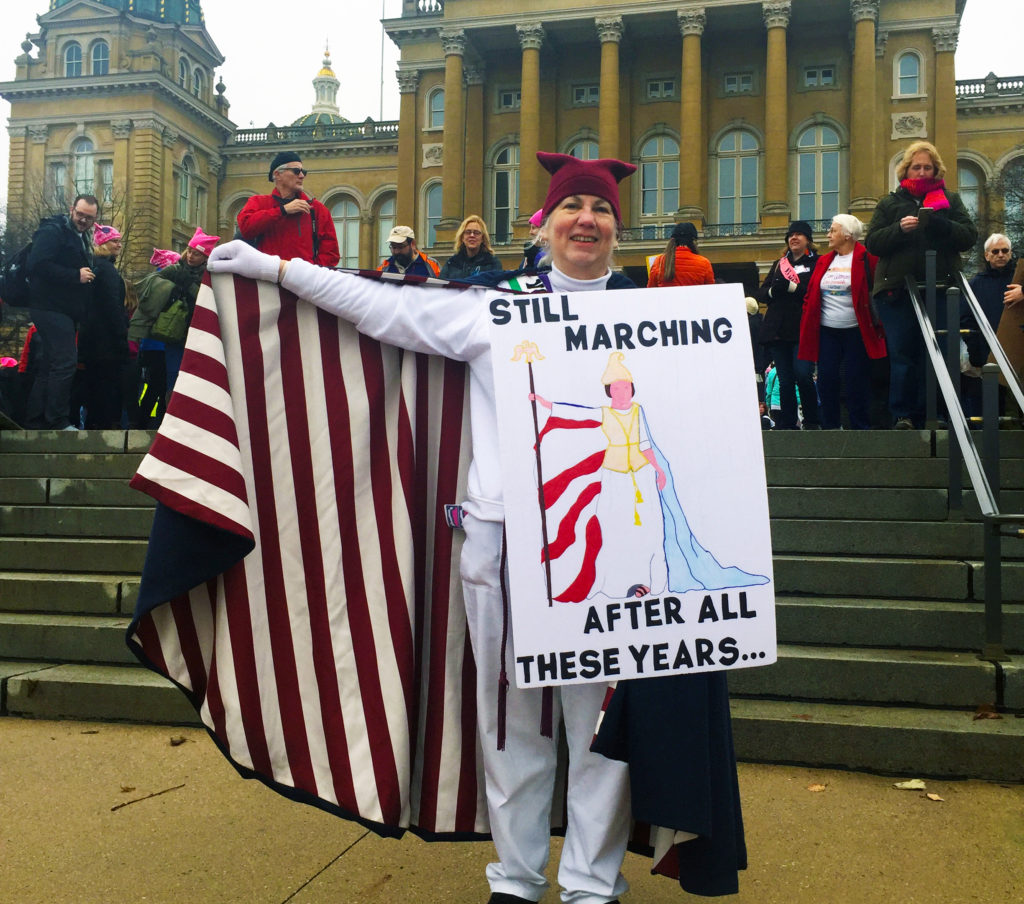Some may view it as a setback, but I think renewed interest in the word feminism is women (and men) finally deciding for themselves.
Each year, the Merriam-Webster Dictionary selects one word that received increased attention and interest throughout the year, naming it as the “Word of the Year.” Not surprisingly, given the current state of our union, the word for 2017 is “feminism.”
The word was one of the top lookups throughout the year, increasing by 70 percent from 2016.
“The general rise in lookups tells us that many people are interested in this word; specific spikes give us insight into some of the reasons why,” Merriam-Webster explains on its website.
It began with the Women’s March last January, and continues amid allegations of sexual harassment and assault. That has some women concerned the feminist movement missed an opportunity, that it hasn’t done a good job in educating women about the role of feminism in society. I’m not among them.
Feminism has gotten a bad reputation from those who fear it; from those who hope women will stay in the very narrow cultural box built for them by the men who have held positions of power. Such battle lines were never more clearly drawn than in Iowa in 1992.
Pat Robertson, founder of the Christian Broadcasting Network, founder of the Christian Coalition and, in 1988, a candidate for president, dipped his finger into Iowa politics in 1992 by issuing a fundraising letter to supporters and evangelicals. The letter took direct aim at the Iowa Equal Rights Amendment, a legislatively referred constitutional amendment on the general election ballot.
“The feminist agenda is not about equal rights for women,” Robertson wrote. “It is about a socialist, anti-family political movement that encourages women to leave their husbands, kill their children, practice witchcraft, destroy capitalism and become lesbians.”
I was living in a particularly conservative region of the country at the time, and while Robertson’s words were directed at Iowans and the upcoming vote, they became a rallying cry for religious conservatives where I lived. They were repeated and summarily given credence from church pulpits — several times while I sat uncomfortably in a pew. Feminism became a dirty word that epitomized women in big cities and on the nation’s coastline, one that no “truly good Christian woman” from middle America would publicly claim.
The Iowa Equal Rights Amendment suffered a narrow defeat that year (52 percent of voters opposed), but Robertson and his ilk also were handed a new national bogeywoman to fuel their anti-feminist rants: Hillary Clinton. Although politicians had spent more than a decade deriding non-white and poor women as greedy “welfare queens” — an erroneous label many affluent women didn’t object to, I’m sorry to say — the move to demonize all women, regardless of station, who dared to claim equal footing was a smooth transition that has been pervading ever since.

So, no, I’m not surprised that many people who previously shunned feminism based on such outrageous and false claims are now taking a second look. And, frankly, it should be cause for celebration.
Merriam-Webster says “feminism” was first placed in an English dictionary by Noah Webster in 1841. At that time, it was defined as “the qualities of females.” The definition now reads: “the theory of the political, economic, and social equality of the sexes” and “organized activity on behalf of women’s rights and interests.” But too many want to read something more sinister into the word. They’ve spent too much time listening to people like Robertson, who believe their worldview is threatened by an equal playing field.
“No one word can ever encapsulate all the news, events or stories of a given year — particularly a year with so much news and so many stories. But when a single word is looked up in great volume, and also stands out as one associated with several different important stories, we can learn something about ourselves through the prism of vocabulary,” says Merriam-Webster.
Maybe there is a silver lining to this fake news world we’re living in. Maybe people are finally deciding not to take the words of other people as fact. Maybe women, in particular, are beginning to question the veracity and frequency of attacks on feminists, and are waking up to the notion that they, too, are reflected in the moniker.
Welcome aboard. We’ve reserved space at the table for you, but don’t feel as if you are required to remain seated or quiet.
This column by Lynda Waddington originally published in The Gazette on Dec. 16, 2017.
